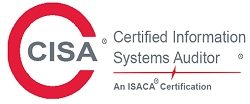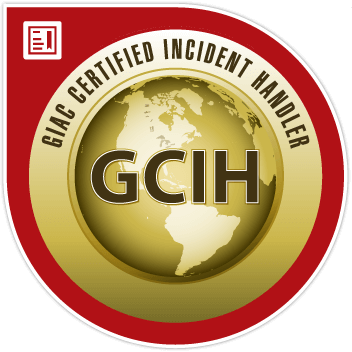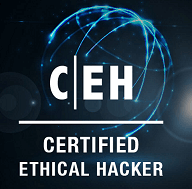If you are interested to learn about the Cyber Security Risk analysis
A certification degree will lead us to our dream job. At some point in our professional life, and IT security certification from a renowned third-party organization may be necessary. Organizations are prone to cybersecurity threats globally than ever before. Company resources are highly exposed to data breaches and systematic hacks, and this trend is only going to increase in the years to come. Following a generalized approach will no longer provide security from sophisticated threats and professionals having expertise in the cybersecurity field aren’t enough to meet the existing demand.

Cyber Security Certifications are available in different shapes and subjects such as forensic to intrusion to ethical hacking. They are typically administrated by independent accredited organizations such as CompTIA, EC Council, GIAC, ISACA, and (ISC) 2.
The certification program is divided into three categories in these accredited organization:
- The basic entry-level certification is meant to educate you in- foundation principles, best practices, important tools, latest technologies, etc.
- The intermediate and expert-level certifications presume that we have extensive job experience and a detailed grasp of the subject matter.
According to the topic or level:
- The employees of the organizations mostly acquire IT security certifications.
- The training and the final exam have consisted of the credential process.
- It must be renewed periodically, such as for every 3-4 years.
- To be reaccredited, we’ll need continuing education credits and the ability to pass the current exam.
Costs for Cyber Security Certification
When we want to get the cybersecurity certification, nothing can stop us from getting our dream job if we have the skills. We cannot here lie about the expense of the certification. The cybersecurity certification can be expensive and time-consuming.
Any entry-level certification takes three-nine months to complete and costs us back $300-$600 for the examination. This certification leads to promotion, better job prospects and raise. It will help you to get a hike in your salary.
Which Certification to Choose
When you want to enroll in entry-level training, you may start by considering the given certification:
- CompTIA Security+
- GSEC: GIAC Security Essential Certification
- SSCP: System Security Certified Practitioner
Spend a little time to study detail about all the above certification categories and compare the CompTIA Security+, and GSEC has a solid reputation within the industry. It is approved for DoD 8570 Baseline Information Assurance. Or you can select security+, which is one of the most well-known beginners’ certification. But these certifications will depend on your level of expertise, and action depends upon your level of expertise and your field of interest.
Some of the popular certification
CISSP: Certified Information System Security Professional is a high-level certification that is focused on security policy and management. It is the most frequently acquired certification in the business by the individuals. It is one of the top-paying IT security certifications.

CISA: Certified Information System Auditor has been designed for the professionals who audit, control, monitor and assess information technology and business systems.

CISM: Certified Information Security Manager has been geared towards people in managerial positions such as the CIO of IT security.

GCIH: GIAC Certified Incident Handler is for the incident handlers responsible for detecting, responding to and resolving computer security incidents.

CEH: Certified Ethical Hacker has been discussed among white hat hackers and penetration testers.

OSCP: Offensive Security Certified Professional has been designed for the penetration testers and includes a rigorous 24-hour certification exam.

Certification benefits :
- Threats, attacks, and vulnerabilities: Within this section, the individual will understand the different causes and also the scenarios when the threats and attacks will occur and how they are mitigated.
- Technologies and Tools: To mitigate or to safeguard existing platform you will need to explore new technologies and tools which will help you to effectively manage your activities.
- Risk management: This section will help you to understand the standard policies and procedures that will help you to understand and apply business policies where the risks and the impacts are reduced.
- Architecture and Design: Helps you to design the security frameworks from scratch
- Cryptography: The basics of cryptography will be introduced
- Identifying and Access Management: This will help you to allocate the right resources at the right time. All user access controls are managed under this section
Conclusion
Getting certifications as you progress in your knowledge, skill level and job position is a great way to solidify your expertise and showcase it to employers. You can decide to take them all, or take just one—at the very least it’s a way to continue learning throughout your career. But it’s important to not treat certifications as a substitute for formal education and work experience (although CISSP has now been granted a qualification level equal to that of a master’s degree throughout Europe).


